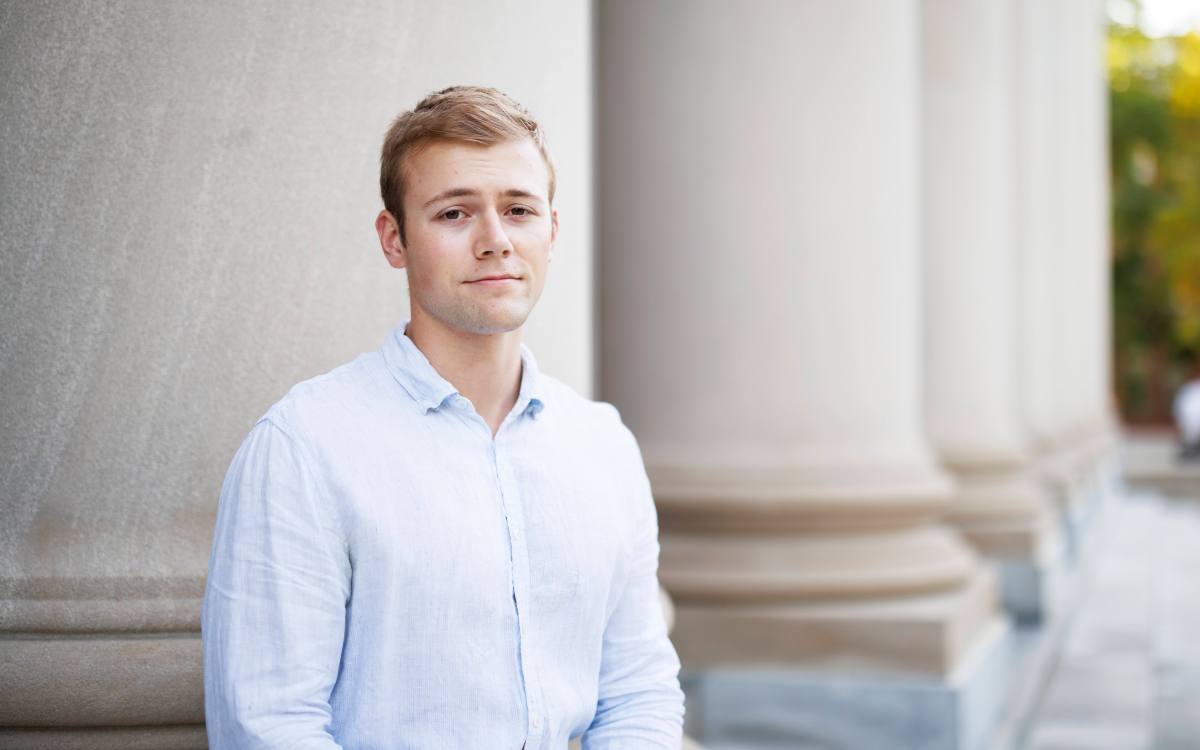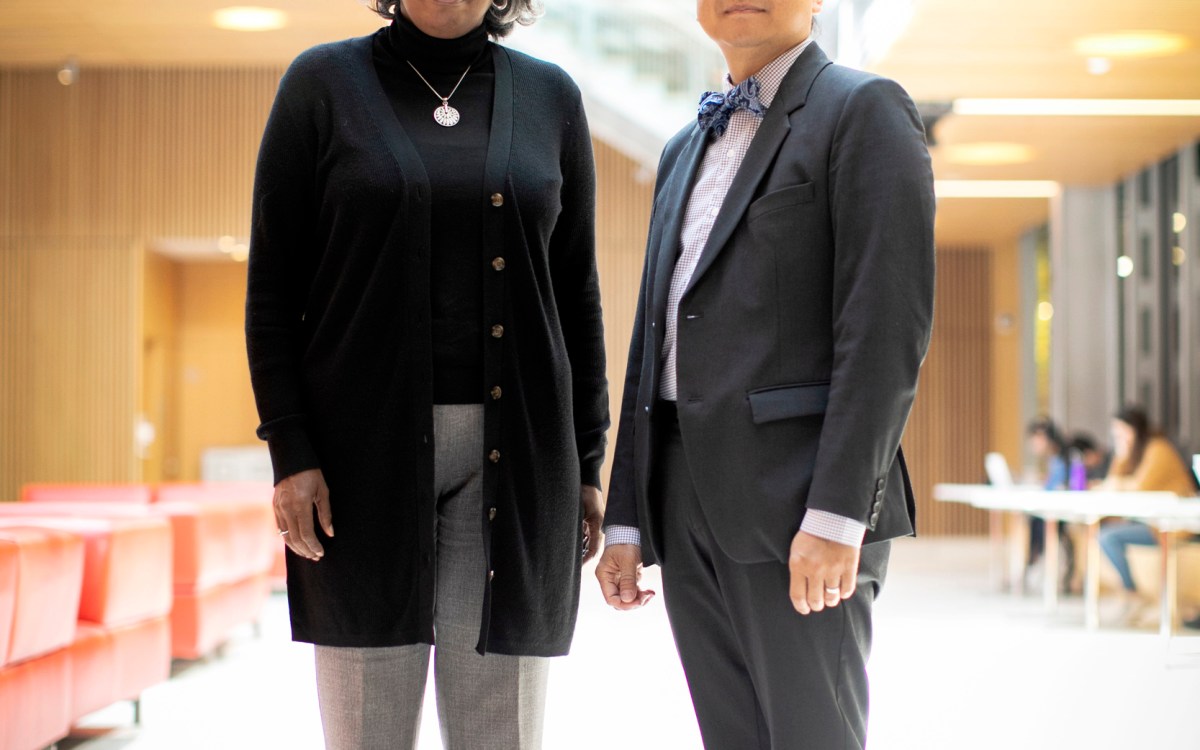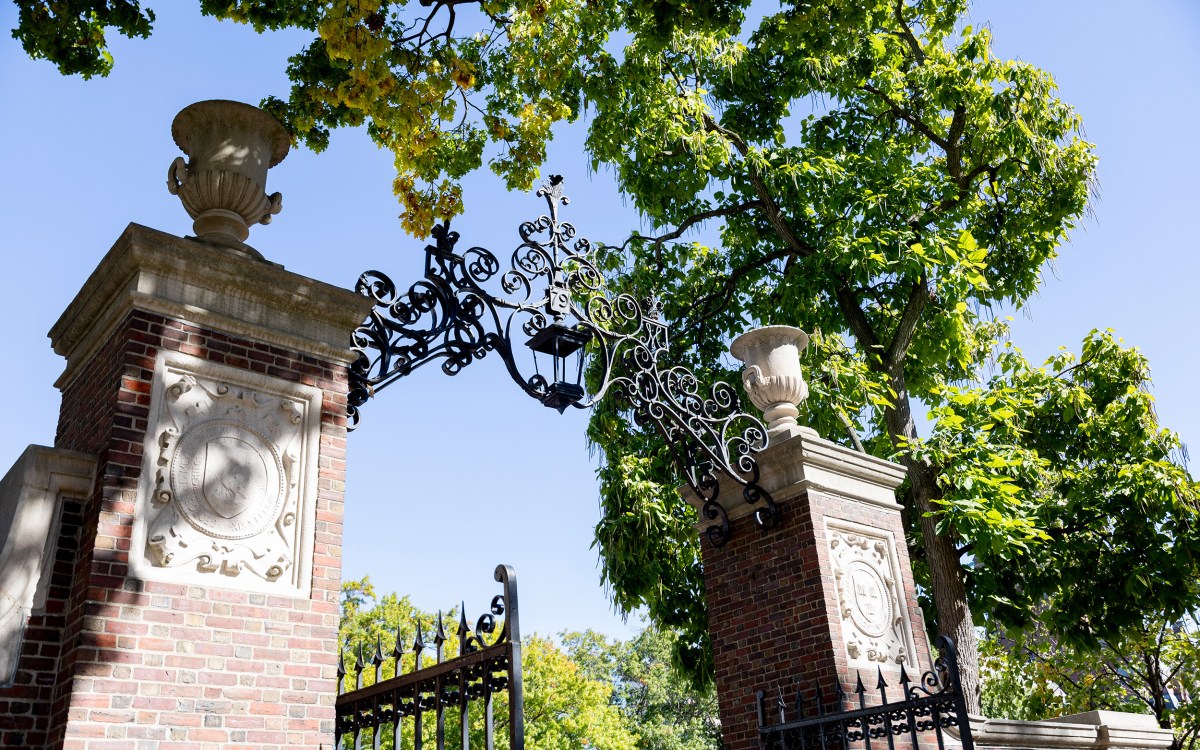
Barbara Lewis, chief of Counseling and Mental Health Services, and Giang Nguyen, executive director of Harvard University Health Services, discuss how TimelyCare will expand access to mental health care for students.
Photos by Jon Chase and Stephanie Mitchell/Harvard Staff Photographers
Expanding student access to mental health care through telehealth
Barbara Lewis, Giang Nguyen say new TimelyCare will supplement CAMHS Cares support, in-person sessions
Harvard University Counseling and Mental Health Services (CAMHS) has launched a partnership with TimelyMD — a virtual health and well-being company — to expand its student mental health offerings. This is one component of a University-wide focus on student well-being and mental health and a result of recommendations put forward by the University’s Task Force on Managing Student Mental Health. This partnership will provide access to telehealth counseling at no cost to students via the company’s student-centered digital platform, TimelyCare. The Gazette spoke with Barbara Lewis, chief of Counseling and Mental Health Services (CAMHS), and Giang Nguyen, executive director of Harvard University Health Services (HUHS), to discuss the expansion of services. Interview was edited for clarity and length.
Q&A
Barbara Lewis and Giang Nguyen
More like this
GAZETTE: Can you describe the TimelyCare partnership and how it will benefit students?
LEWIS: Our partnership with TimelyCare significantly expands access to mental health care for our student population. Through its digital platform, all Harvard students who receive care through HUHS will be able to access up to 12 virtual therapy sessions over the year, free of charge.
Additionally, students will have the opportunity to schedule an appointment with a virtual provider to prescribe medications. These prescription appointments will be vetted and referred by a CAMHS clinician.
NGUYEN: Through TimelyCare, students with mild or moderate mental health concerns can schedule an appointment to discuss these issues with the same professional over multiple virtual appointments.
GAZETTE: Why has the University partnered with this company?
NGUYEN: As the University was considering ways to strengthen and expand access to services and support, we looked closely at the opportunities that telehealth providers have to offer. This is a space that has grown significantly in recent years through the pandemic. TimelyMD — the parent company of TimelyCare — is experienced in addressing the mental health needs of students through highly successful partnerships with university campuses across the nation. Consequently, they are accustomed to providing telehealth services for psychotherapy and psychiatry in a young adult population.
LEWIS: In addition to being well-established in the teletherapy field within university settings, the company had the capacity to provide services to our large student body.
GAZETTE: Last year, CAMHS introduced the CAMHS Cares 24/7 support line, which provides mental health counseling for urgent and nonurgent matters. Did the success of that offering inform this partnership?
NGUYEN: The high utilization of CAMHS Cares reinforced to us the need to expand the delivery model for student mental health. This expansion of offerings, in adding telehealth supports, allows for flexibility in how a student responds to their mental health needs. In some cases, students needed help in the moment — which the support line offers. Other times, students wanted to set up an appointment to initiate care later, with the knowledge that CAMHS would provide some level of continuity. Additionally, some situations work best with in-person care, while telehealth is preferred in others.
GAZETTE: How can students access TimelyCare?
LEWIS: Students can receive telehealth visits from any web-enabled device. Students can visit the CAMHS site for information about how to access TimelyCare. Once signed in, a student can examine a list of counselors — along with their biography and field expertise — and schedule an appointment.
“This expansion of offerings … allows for flexibility in how a student responds to their mental health needs.”
Giang Nguyen
GAZETTE: When should a student use TimelyCare as opposed to CAMHS Cares? How does this service connect with other mental health offerings from the University?
LEWIS: CAMHS Cares is for “in-the-moment” care. It can be used when a student is in distress or for nonurgent mental health concerns. By contrast, the TimelyCare option is for short-term, solution-focused therapy.
NGUYEN: In our experience, most moderate student mental health concerns can be addressed successfully in about six to eight sessions. The fact that TimelyCare allows as many as 12 per year for each student is fantastic.
CAMHS Cares, on the other hand, works without an appointment and, while it can be a resource for someone in distress, it can also help students talk through less-urgent concerns at a moment when it is at the top of their mind, perhaps yielding a real-time solution and preventing the problem from growing over time.
LEWIS: Students will still have access to all other CAMHS services once connected to TimelyCare. If they want to speak to a licensed therapist at a time of need, they can still pick up the phone and call CAMHS Cares.
Additionally, they will have advocates in the Access Team, a group of full-time staff who will engage with students seeking mental health care at CAMHS. Members of this team will conduct initial consultations, determine appropriate care, and stay connected with students until appropriate treatment is secured.





